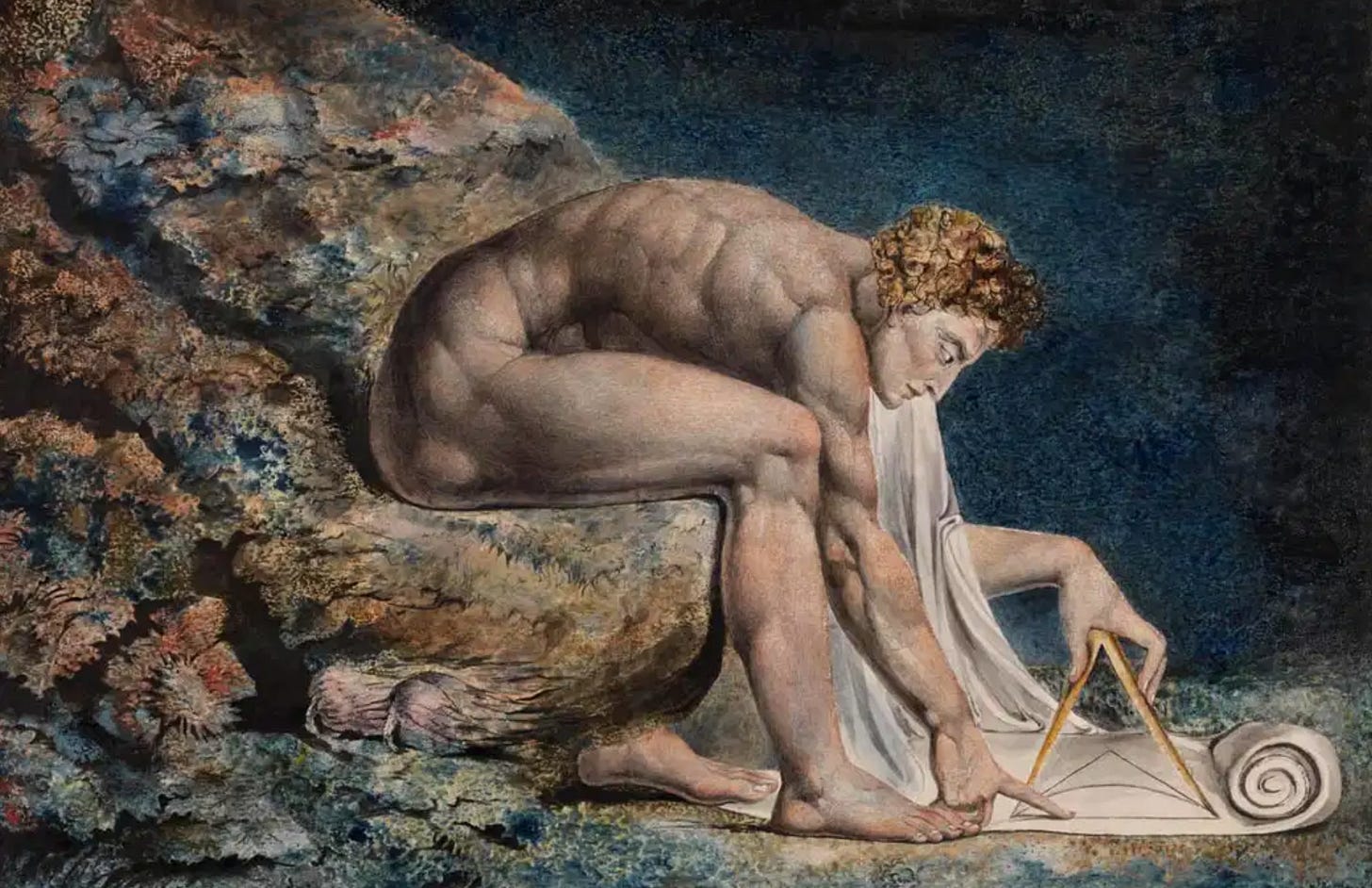Dear Readers,
I am tired of ‘hot’ political texts. So, below, a short note on quantum physics.
As always, if you have the means and value writing that both enriches and disturbs, please consider becoming a paid subscriber.
(Picture: Newton by William Blake, 1795)
As we know from psychoanalysis as well as from cognitive sciences, consciousness is always an intersubjective phenomenon. How, then, can quantum mechanics, as a complete theory of reality, explain itself as an intersubjectively shared universal theory? Emily Adlam acknowledges this problem:
“Any successful interpretation of quantum mechanics must explain how our empirical evidence allows us to come to know about quantum mechanics. … this vital criterion is not met by the class of 'orthodox interpretations' … observers in such a universe are unable to escape their own perspective in order to learn about the structure of the set of perspectives that is supposed to make up reality according to these interpretations. … it cannot be rational to believe these sorts of interpretations unless they are supplemented with some observer-independent structure which underwrites intersubjective agreement in at least certain sorts of cases.”
In the text co-written by Adlam and Carlo Rovelli, they frame this same issue as immanent to Relational Quantum Mechanics (RQM), calling it a “tension between two founding principles of RQM”:
“The idea that information is physical and the idea that there exists no ‘view from nowhere’ from which the perspectives of different observers can be compared. How is this tension to be resolved? One possible response would be to argue that when Alice observes a measurement outcome, her ‘knowledge’ is somehow illusory: the real information is in the physical correlations which are accessible to Bob and other observers, which fail to single out any one measurement outcome. But in fact Alice’s subjective perspective cannot simply be disregarded in this way, because it is the subjective perspective which plays the central role in empirical confirmation. After all, when we are trying to get empirical confirmation for a scientific theory we are necessarily doing that from within our own subjective perspective based on the world as we perceive it.”
To resolve this tension, Rovelli and Adlam propose a new postulate for RQM:
“All of the information possessed by a certain observer is stored in physical variables of that observer and thus accessible by measurement to other observers. The postulate of cross-perspective links ensures that observers can reach intersubjective agreement about quantum events which have occurred in the past, thus shoring up the status of RQM as a form of scientific realism and ensuring that empirical confirmation is possible in RQM.”
Keep reading with a 7-day free trial
Subscribe to ŽIŽEK GOADS AND PRODS to keep reading this post and get 7 days of free access to the full post archives.


